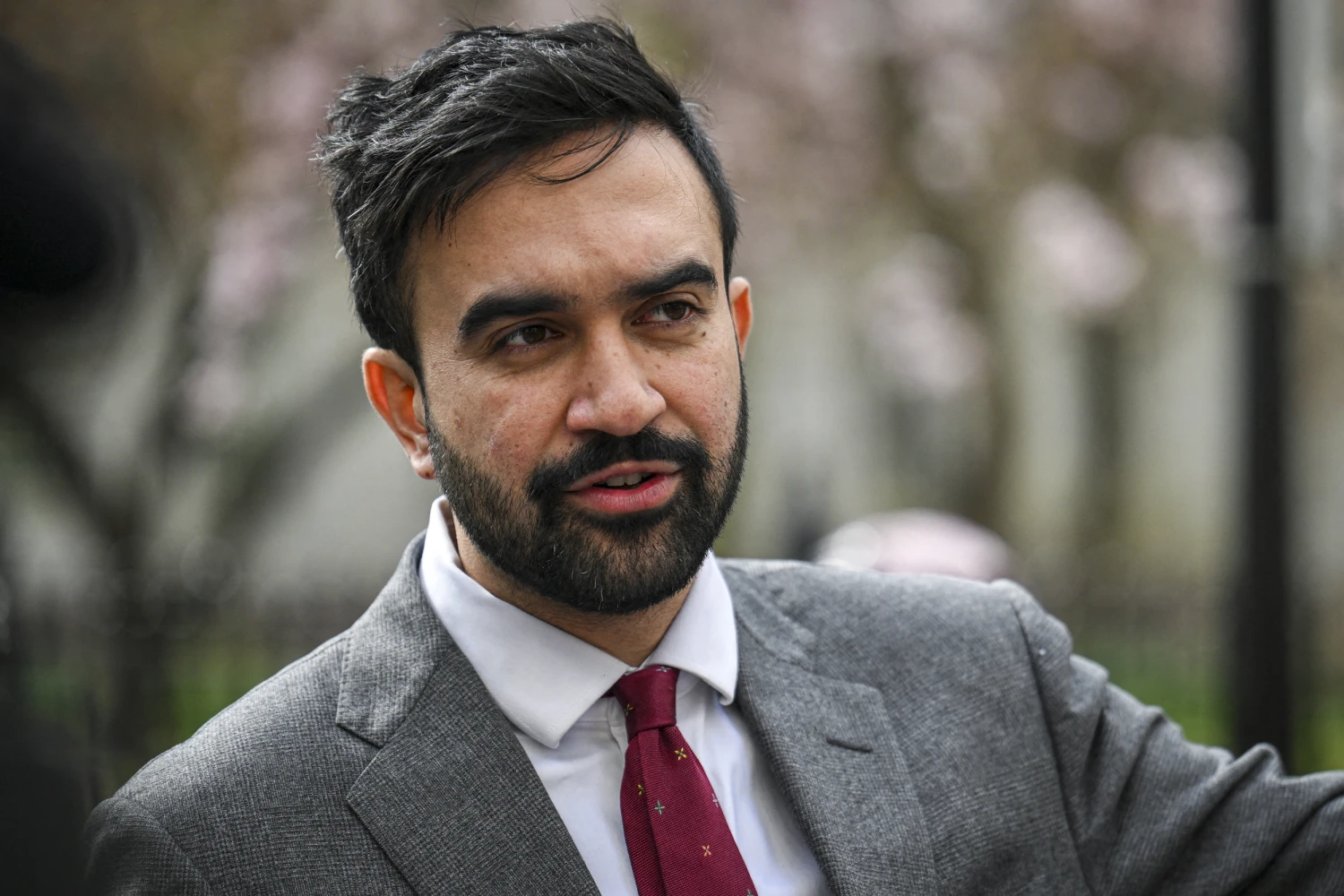New York City is poised to announce its next mayor today, as voters across the city head to the polls in what has become one of the most closely watched mayoral races in recent memory. The election has drawn intense attention, not only because of the candidates’ profiles but also because of the broader political implications for New York and the nation.
Three main candidates are vying to replace the current mayor, Eric Adams, a Democrat and former NYPD captain who withdrew from his re-election campaign back in September. The candidates are former New York Governor Andrew Cuomo, Republican radio host and political activist Curtis Sliwa, and Democrat Zohran Mamdani. Each brings a distinct vision for the city, representing a broad spectrum of political ideologies and approaches to governance.
According to recent opinion polls, Mamdani, the youngest of the trio at 34 years old, is the clear front-runner. If elected, Mamdani would make history as New York City’s first Muslim mayor, a milestone in a city long celebrated for its diversity. Mamdani identifies as a democratic socialist and has campaigned on progressive policies aimed at addressing wealth inequality, expanding affordable housing, and protecting tenants in the city’s long-standing housing crisis.
Zohran Mamdani: A Progressive Vision
Zohran Mamdani’s platform centers on several key proposals that distinguish him from his opponents. He has called for higher taxes on the city’s wealthiest residents to fund public programs, greater investment in publicly subsidized housing, and freezing rent increases for tenants in stabilized apartments. These measures aim to address the growing concerns over affordability and displacement, particularly in neighborhoods that have experienced rapid gentrification over the past decade.
In addition to his policy proposals, Mamdani has leveraged his relative youth and outsider status as strengths, emphasizing his connection to the city’s younger population and marginalized communities. His campaign portrays him as a candidate unafraid to challenge entrenched interests and advocate for structural reforms that prioritize the well-being of everyday New Yorkers over corporate or political elites.
Mamdani’s rise to prominence has not been without controversy. Critics have framed him as too radical, labeling his democratic socialist ideology as impractical for managing a city as complex as New York. Supporters, however, argue that his proposals reflect an urgent need to address systemic inequities and provide long-term solutions to the city’s housing and social challenges.
When Will the Results Be Announced?
Voting is underway across New York City’s five boroughs—Bronx, Brooklyn, Manhattan, Queens, and Staten Island. Polls opened at 6 a.m. ET and will close at 9 p.m. ET today, giving residents 15 hours to cast their ballots.
While there is no official deadline for the announcement of the winner, historical precedent suggests that results could be known relatively quickly after polls close. In the 2021 mayoral election, Eric Adams was declared the victor roughly 10 minutes after the close of voting, securing approximately two-thirds of the vote. Given modern vote-counting technology and early voting trends, it is likely that New Yorkers will know who their next mayor is before the day ends.
The rapidity of results will be particularly important for city officials and residents who are eager to understand how the leadership transition might affect immediate policies and ongoing projects. With critical issues such as public safety, transportation, and education at stake, the new mayor’s priorities will be closely scrutinized from the moment they take office.
Donald Trump’s Controversial Remarks
President Donald Trump has inserted himself into the mayoral race with a series of highly publicized comments that have drawn national attention. In an interview with CBS’s 60 Minutes, Trump referred to Mamdani as a “communist,” a remark that was widely described as unusual and even delusional by viewers and political commentators alike.
During the interview, correspondent Norah O’Donnell attempted to frame Mamdani’s candidacy in neutral terms, saying: “Zohran Mamdani, 34-year-old Democratic Socialist—.” Trump interrupted, insisting: “Communist, not a socialist. He’s a communist. He’s far worse than a socialist.” The exchange quickly went viral, with many criticizing the president for conflating democratic socialism with communism and for the personal nature of his attack.
Trump also made a surprising comparison between himself and Mamdani, remarking: “Well I think I’m a much better-looking person than him, right?” This comment, which drew laughter and incredulity from the audience, underscored the unusual tenor of Trump’s involvement in a local election.
Beyond rhetoric, Trump has signaled that he may take concrete steps to challenge a potential Mamdani administration. He previously threatened to withhold federal funding from New York City if Mamdani were elected, a move that could have significant implications for city services and infrastructure projects that rely on federal support. On Truth Social, Trump wrote: “Whether you personally like Andrew Cuomo or not, you really have no choice. You must vote for him, and hope he does a fantastic job. He is capable of it, Mamdani is not!”
Trump’s Support for Cuomo
Interestingly, Trump has focused much of his energy not on promoting his party’s candidate, Curtis Sliwa, but on opposing Mamdani by endorsing Cuomo, who served as governor of New York from 2011 until his resignation in 2021 following multiple sexual misconduct allegations, all of which he denies. Trump has characterized a vote for Sliwa as indirectly supporting Mamdani, framing the election as a binary choice between Cuomo and Mamdani.
Cuomo, for his part, has downplayed Trump’s endorsement, noting that the president’s support is less about his candidacy and more about preventing a Mamdani victory. Cuomo’s campaign has sought to appeal to moderate and independent voters, emphasizing his experience in government while attempting to distance himself from the controversies of his past tenure as governor.
The Stakes of the Mayoral Race
The 2025 mayoral race represents more than a routine municipal election; it reflects broader political currents and generational shifts in New York City. The outcome could signal a turning point in the city’s approach to issues like housing affordability, policing, and taxation, as well as set the tone for future elections at both the state and national levels.
For voters, the decision comes at a time when the city faces pressing challenges. Rising crime rates in certain boroughs, growing income inequality, and ongoing debates over public education funding are all critical issues that the next mayor will need to address. Each candidate offers a distinct vision for how to tackle these problems, making voter turnout especially consequential.
Voter Sentiment and Early Indicators
Polls suggest that Mamdani is well-positioned to secure a historic victory. His emphasis on social equity, tenant protections, and progressive taxation has resonated with younger voters and communities that feel overlooked by traditional political structures. At the same time, Cuomo’s experience and established political network give him a foothold among moderate voters who may be hesitant to embrace a radical shift in city governance.
Sliwa, the Republican candidate, has focused on public safety and fiscal conservatism, but his chances of winning appear slim based on current polling data. Nonetheless, his candidacy could influence the race by drawing votes away from Cuomo, potentially impacting the dynamics of the election in close precincts.
Historical Context
New York City’s mayoral elections have historically served as bellwethers for larger political trends. Past elections have highlighted shifts in demographic influence, the rise of progressive movements, and the challenges of governing a city as diverse and complex as New York. Mamdani’s potential victory would mark a historic first for both age and religious representation in the city’s top office, reflecting broader societal changes and a generational shift in political leadership.
The rapid pace of modern elections, fueled by early voting, digital polling, and instant result reporting, means that today’s outcome will be known quickly. However, the implications of the election will be felt long after the votes are counted, influencing policy debates and political discourse for years to come.
Looking Ahead
As polls close and New Yorkers await the results, the city stands on the brink of a potentially transformative moment. The next mayor will inherit a city with both significant challenges and remarkable opportunities. From housing and education to public safety and economic development, the choices made by the incoming administration will shape the lives of millions of residents.
For Zohran Mamdani, a win would represent not only personal achievement but also a symbolic milestone for progressive politics and representation in the city. For Cuomo, it is a chance to return to public office and demonstrate that experience can outweigh past controversies. And for Sliwa, the race, though uphill, underscores the continuing presence of conservative voices in a city often perceived as overwhelmingly liberal.
Whatever the outcome, today’s election will likely be remembered as a defining moment in New York City’s political history, reflecting the evolving priorities, identities, and aspirations of its residents. The announcement of the new mayor, expected shortly after polls close, will mark the beginning of a new chapter for the nation’s largest city—a chapter that promises to test the balance between tradition, innovation, and the diverse voices that make New York unique.

Emily Johnson is a critically acclaimed essayist and novelist known for her thought-provoking works centered on feminism, women’s rights, and modern relationships. Born and raised in Portland, Oregon, Emily grew up with a deep love of books, often spending her afternoons at her local library. She went on to study literature and gender studies at UCLA, where she became deeply involved in activism and began publishing essays in campus journals. Her debut essay collection, Voices Unbound, struck a chord with readers nationwide for its fearless exploration of gender dynamics, identity, and the challenges faced by women in contemporary society. Emily later transitioned into fiction, writing novels that balance compelling storytelling with social commentary. Her protagonists are often strong, multidimensional women navigating love, ambition, and the struggles of everyday life, making her a favorite among readers who crave authentic, relatable narratives. Critics praise her ability to merge personal intimacy with universal themes. Off the page, Emily is an advocate for women in publishing, leading workshops that encourage young female writers to embrace their voices. She lives in Seattle with her partner and two rescue cats, where she continues to write, teach, and inspire a new generation of storytellers.









